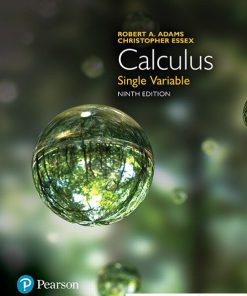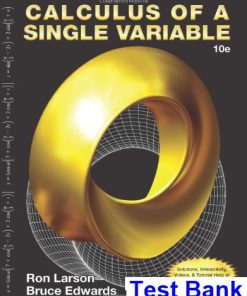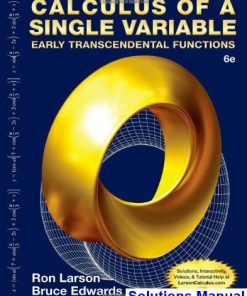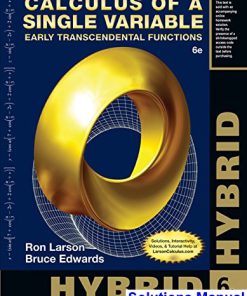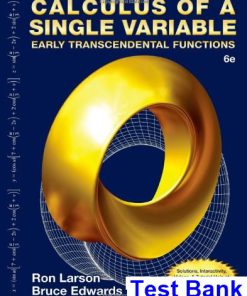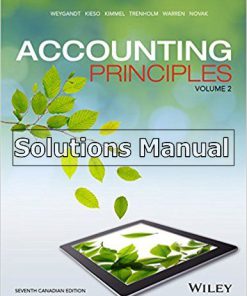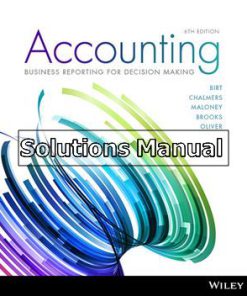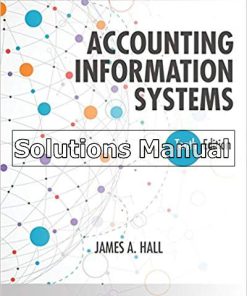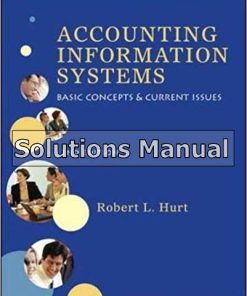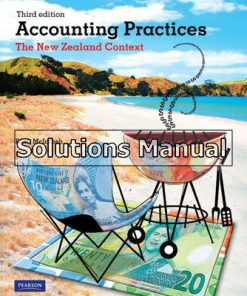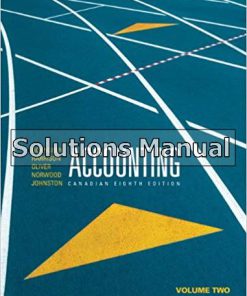Calculus of a Single Variable 11th Edition Larson Solutions Manual
$26.50$50.00 (-47%)
Calculus of a Single Variable 11th Edition Larson Solutions Manual.
You may also like
Calculus of a Single Variable 11th Edition Larson Solutions Manual
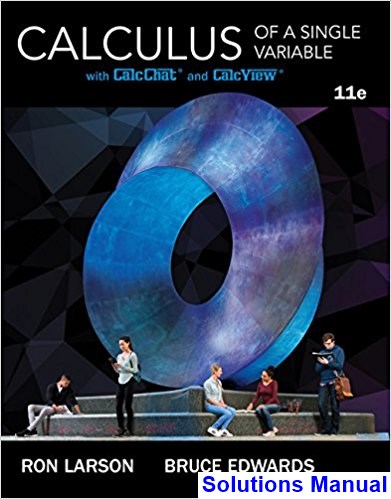
Product details:
- ISBN-10 : 9781337275361
- ISBN-13 : 978-1337275361
- Author: Dr. Ron Larson
Larson/Edwards� CALCULUS, 11th Edition, expertly combines the printed textbook and technology to deliver everything you need to master the material and pass the class. Stepped-out solution videos with instruction are available at CalcView.com for selected exercises throughout the text, and the website CalcChat.com presents free solutions to all of the odd-numbered exercises in the text. WebAssign is a flexible and fully customizable online instructional solution that puts powerful tools in your hands, enabling you to deploy assignments, add your own content, instantly assess individual student and class performance, and help your students master course concepts.
Table contents:
Introduction: The Roots of Calculus
1 LIMITS AND CONTINUITY
1.1 Limits (An Intuitive Approach)
1.2 Computing Limits
1.3 Limits at Infinity; End Behavior of a Function
1.4 Limits (Discussed More Rigorously)
1.5 Continuity
1.6 Continuity of Trigonometric Functions
2 THE DERIVATIVE
2.1 Tangent Lines and Rates of Change
2.2 The Derivative Function
2.3 Introduction to Techniques of Differentiation
2.4 The Product and Quotient Rules
2.5 Derivatives of Trigonometric Functions
2.6 The Chain Rule
2.7 Implicit Differentiation
2.8 Related Rates
2.9 Local Linear Approximation; Differentials
3 THE DERIVATIVE IN GRAPHIN AND APPLICATIONS
3.1 Analysis of Function I: Increase, Decrease, and Concavity
3.2 Analysis of Function II: Relative Extrema; Graphing Polynomials
3.3 Analysis of Functions III: Rational Functions, Cups, and Vertical Tangents
3.4 Absolute Maxima and Minima
3.5 Applied Maximum and Minimum Problems
3.6 Rectilinear Motion
3.7 Newton’s Method
3.8 Rolle’s Theorem; Mean-Value Theorem
4 INTEGRATION
4.1 An Overview of the Area Problem
4.2 The indefinite Integral
4.3 Integration by Substitution
4.4 The Definition of Area as a Limit; Sigma Notation
4.5 The Definite Integral
4.6 The Fundamental Theorem of Calculus
4.7 Rectilinear Motion Revisited Using Integration
4.8 Average Value of a Function and its Applications
4.9 Evaluating Definite Integrals by Substitution
5 APPLICATIONS OF THE DEFINITE INTEGRAL IN GEOMETRY, SCIENCE, AND ENGINEERING
5.1 Area Between Two Curves
5.2 Volumes by Slicing; Disks and Washers
5.3 Volumes by Cylindrical Shells
5.4 Length of a Plane Curve
5.5 Area of a Surface of Revolution
5.6 Work
5.7 Moments, Centers of Gravity, and Centroids
5.8 Fluid Pressure and Force
6 EXPONENTIAL, LOGARITHMIC, AND INVERSE TRIGONOMETRIC FUNCTIONS
6.1 Exponential and Logarithmic Functions
6.2 Derivatives and Integrals Involving Logarithmic Functions
6.3 Derivatives of Inverse Functions; Derivatives and Integrals Involving Exponential Functions
6.4 Graphs and Applications Involvig Logarithmic and Exponential Functions
6.5 LHopital’s Rule; Indeterminate Forms
6.6 Logarithmic and Other Functions Defined by Integrals
6.7 Derivatives and Integrals Involving Inverse Trigonometric Functions
6.8 Hyperbolic Functions and Hanging Cables
7 PRINCIPLES OF INTEGRAL EVALUATION
7.1 An Overview of Integration Methods
7.2 Integration by Parts
7.3 Integrating Trigonometric Functions
7.4 Trigonometric Substitutions
7.5 Integrating Rational Functions by Partial Fractions
7.6 Using Computer Algebra Systems and Tables of Integrals
7.7 Numerical Integration; Simpson’s Rule
7.8 Improper Integrals
8 MATHEMATICAL MODELING WITH DIFFERENTIAL EQUATIONS
8.1 Modeling with Differential Equations
8.2 Separation of Variables
8.3 Slope Fields; Euler’s Method
8.4 First-Order Differential Equations and Applications
9 INFINITE SERIES
9.1 Sequences
9.2 Monotone Sequences
9.3 Infinite Series
9.4 Convergence Tests
9.5 The Comparison, Ratio, and Root Tests
9.6 Alternating Series; Absolute and Conditional Convergence
9.7 Maclaurin and Taylor Polynomials
9.8 Maclaurin and Taylor Series; Power Series
9.9 Convergence of Taylor Series
9.10 Differentiating and Integrating Power Series; Modeling with Taylor Series
10 PARAMETRIC AND POLAR CURVES; CONIC SECTIONS
10.1 Parametric Equations; Tangent Lines and Arc Length for Parametric Curves
10.2 Polar Coordinates
10.3 Tangent Lines, Arc Length, and Area for Polar Curves
10.4 Conic Sections
10.5 Rotation of Axes; Second-Degree Equations
10.6 Conic Sections in Polar Coordinates
11 THREE-DIMENSIONAL SPACE; VECTORS
11.1 Rectangular Coordinates in 3-Space; Spheres; Cylindrical Surfaces
11.2 Vectors
11.3 Dot Product; Projections
11.4 Cross Product
11.5 Parametric Equations of Lines
11.6 Planes in 3-Space
11.7 Quadric Surfaces
11.8 Cylindrical and Spherical Coordinates
12 VECTOR-VALUED FUNCTIONS
12.1 Introduction to Vector-Valued Functions
12.2 Calculus of Vector-Valued Functions
12.3 Change of Parameter; Arc Length
12.4 Unit Tangent, Normal, and Binormal Vectors
12.5 Curvature
12.6 Motion Along a Curve
12.7 Kepler’s Laws of Planetary Motion
13 PARTIAL DERIVATIVES
13.1 Functions of Two or More Variables
13.2 Limits and Continuity
13.3 Partial Derivatives
13.4 Differentiability, Differentials, and Local Linearity
13.5 The Chain Rule
13.6 Directional Derivatives and Gradients
13.7 Tangent Planes and Normal Vectors
13.8 Maxima and Minima of Functions of Two Variables
13.9 Lagrange Multipliers
14 MULTIPLE INTEGRALS
14.1 Double Integrals
14.2 Double Integrals over Nonrectangular Regions
14.3 Double Integrals in Polar Coordinates
14.4 Surface Area; Parametric Surfaces
14.5 Triple Integrals
14.6 Triple Integrals in Cylindrical and Spherical Coordinates
14.7 Change of Variables in Multiple Integrals; Jacobians
14.8 Centers of Gravity Using Multiple Integrals
15 TOPICS IN VECTOR CALCULUS
15.1 Vector Fields
15.2 Line Integrals
15.3 Independence of Path; Conservative Vector Fields
15.4 Green’s Theorem
15.5 Surface Integrals
15.6 Applications of Surface Integrals; Flux
15.7 The Divergence Theorem
15.8 Stokes’ Theorem
APPENDICES
A TRIGONOMETRY SUMMARY
B FUNCTIONS (SUMMARY)
C NEW FUNCTIONS FROM OLD (SUMMARY)
D FAMILIES OF FUNCTIONS (SUMMARY)
ANSWERS TO ODD-NUMBERED EXERCISES
INDEX
People also search:
global marketing management 6th edition
what is global marketing management
global marketing manager salary
global marketing manager job description
what is international marketing management

